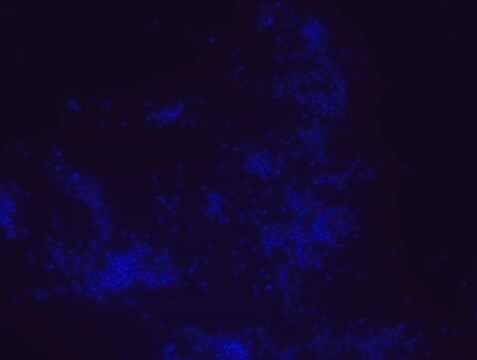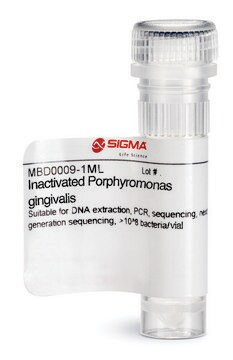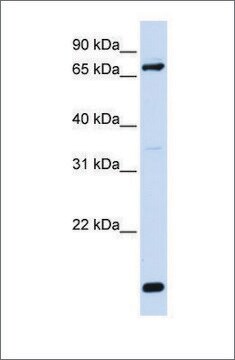SAB4200832
Anti-Porphyromonas gingivalis antibody produced in rabbit
IgG fraction of antiserum
About This Item
Recommended Products
biological source
rabbit
antibody form
IgG fraction of antiserum
description
Research area: Microbiome
form
buffered aqueous solution
species reactivity
Porphyromonas gingivalis (Lipopolysaccharides (LPS) from whole extract)
packaging
antibody small pack of 25 μL
concentration
~1 mg/mL
technique(s)
immunoblotting: 1:50,000-1:100,000 using dead Porphyromonas gingivalis bacteria
indirect ELISA: 1:20,000-1:40,000 using Porphyromonas gingivalis LPS for coating.
shipped in
dry ice
storage temp.
−20°C
target post-translational modification
unmodified
Related Categories
General description
Application
Physical form
Other Notes
Disclaimer
Storage Class Code
10 - Combustible liquids
WGK
WGK 1
Flash Point(F)
Not applicable
Flash Point(C)
Not applicable
Regulatory Listings
Regulatory Listings are mainly provided for chemical products. Only limited information can be provided here for non-chemical products. No entry means none of the components are listed. It is the user’s obligation to ensure the safe and legal use of the product.
JAN Code
IXO12128:
SAB4200832-100UL:
SAB4200832-VAR:
SAB4200832-25UL:
SAB4200832-BULK:
Certificates of Analysis (COA)
Search for Certificates of Analysis (COA) by entering the products Lot/Batch Number. Lot and Batch Numbers can be found on a product’s label following the words ‘Lot’ or ‘Batch’.
Already Own This Product?
Find documentation for the products that you have recently purchased in the Document Library.
Our team of scientists has experience in all areas of research including Life Science, Material Science, Chemical Synthesis, Chromatography, Analytical and many others.
Contact Technical Service








